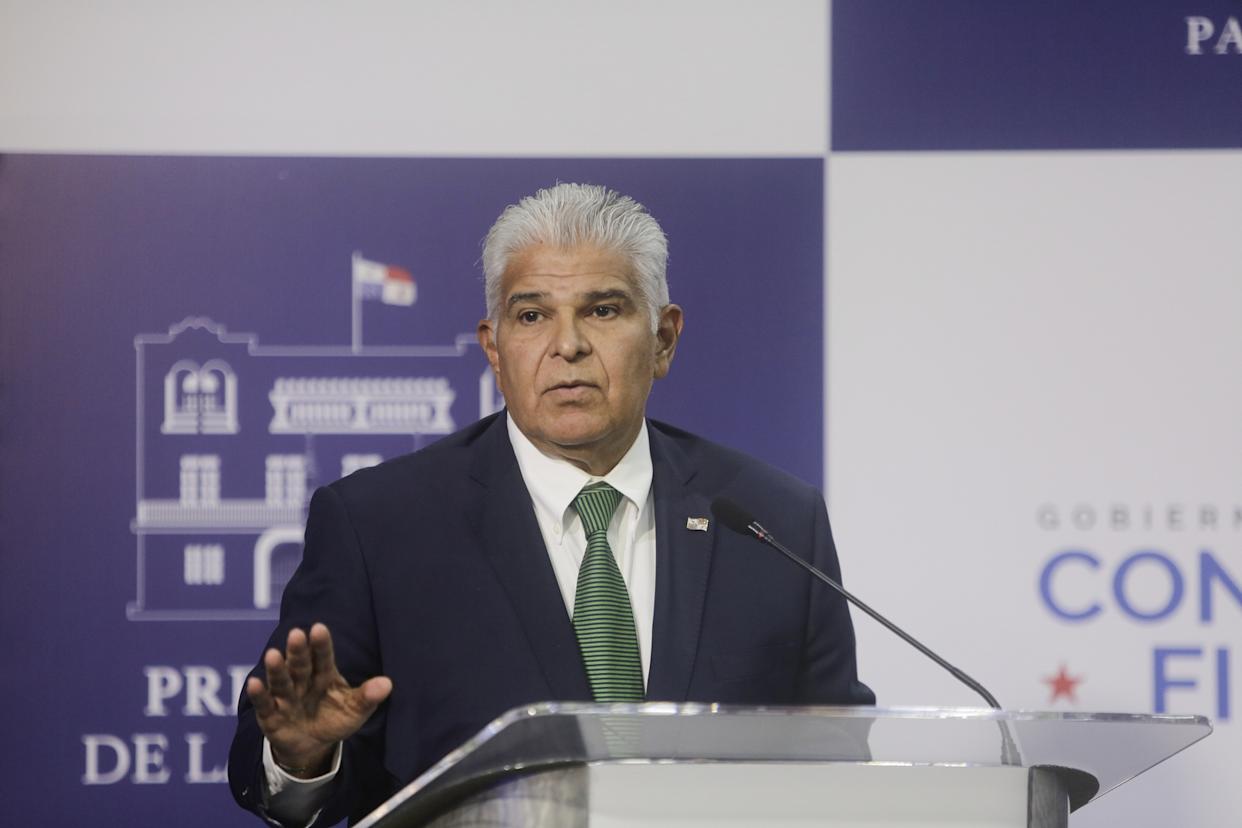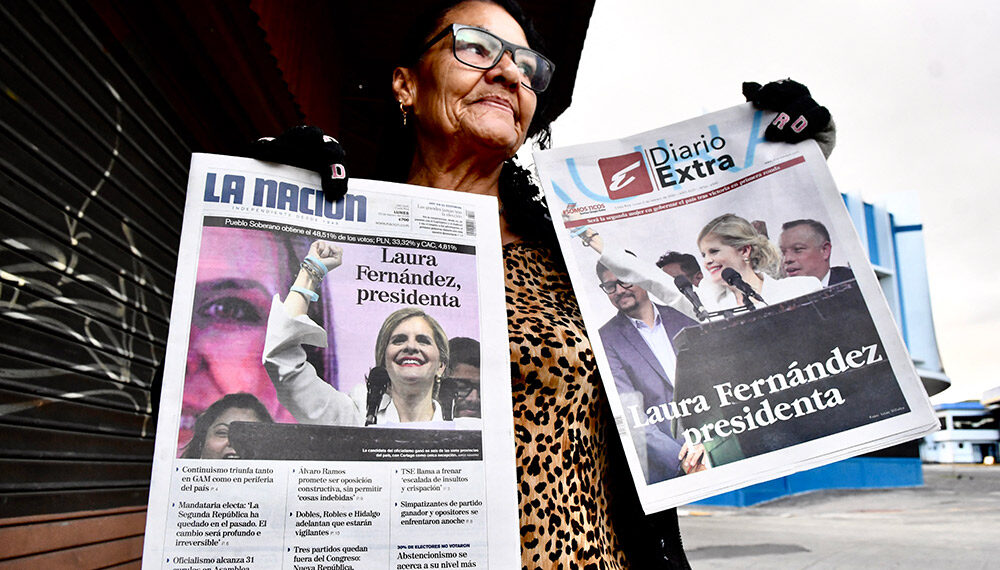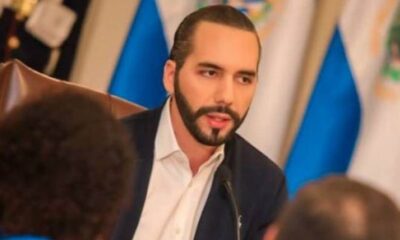Central America
US Congressman Gaetz praises El Salvador’s transformation under President Bukele

Matthew Louis Gaetz, a Republican Congressman from the United States, highlighted in an interview how El Salvador, under the presidency of Nayib Bukele, has transitioned from a “failed state” to positioning itself as the Singapore of the Western Hemisphere.
The American official recalled his recent visit to the country for President Bukele’s inauguration ceremony, marking the beginning of his second term on June 1st.
“I just returned from El Salvador. I was at Bukele’s inauguration. He is one of the most impressive people I’ve ever met. I saw a country that was basically a failed state and now is positioned to be the Singapore of the Western Hemisphere,” Gaetz said.
He added that if El Salvador, with a population of 6 million, has managed to reach this position “by simply imprisoning 70,000 people, then I’m not convinced that Canada is so dominated by globalists that it can’t overcome them.”
President Bukele’s security strategy, implementing the Territorial Control Plan, reinforced by the state of emergency, is the most successful in the country’s history and an example to the world. Last year, the homicide rate closed at 2.4 per 100,000 inhabitants; there was also a decline in crimes such as extortion, robbery, theft, and assaults nationwide. By the end of the first quarter of 2024 (January-March), it was 1.5.
In response to the interviewer’s comments about the need for countries to choose leaders “who believe in their citizens and want to support them,” Congressman Gaetz noted, “That’s right, although it must be more enduring than that. It has to last longer than just one person, but I think in every great movement, there are people who become the vanguard.”
“I saw people in the congress [Legislative Assembly], in the government, in the diplomatic corps, for whom Bukelism is emerging as a concept […] and I think that’s what attracts the younger generation,” the congressman reflected.
He mentioned that President Bukele showed him a photo depicting how students in a public school no longer aspire to be gang members or thieves but rather police officers, chefs, and entrepreneurs. “Compare that with our situation,” he said, expressing his admiration for discovering in a Salvadoran karaoke that Father’s Day is celebrated throughout June.
Central America
Panama Will Not Be Threatened, President Says Amid Rising Tensions With China

Panamanian President José Raúl Mulino warned on Thursday that his country “will not allow itself to be threatened,” while expressing hope that tensions with China will ease following the cancellation of a contract allowing a Hong Kong-based company to operate ports along the Panama Canal.
Earlier this week, China, through its Hong Kong and Macao Affairs Office, said Panama would pay “a high price” for annulling the concession that has allowed a subsidiary of CK Hutchison Holdings to manage two ports on the interoceanic waterway since 1997.
The decision has angered Beijing, which, according to Bloomberg, has urged its state-owned companies to suspend negotiations on new projects with the Central American country.
“Panama is a dignified country and will not allow itself to be threatened by any nation on Earth,” Mulino said during a press conference when asked about China’s warnings.
However, the president added that he hopes the situation will not escalate. “I hope this does not spiral further; there is no reason for it to do so,” he said.
The ruling by Panama’s Supreme Court came amid pressure from U.S. President Donald Trump, who has threatened to reclaim the Panama Canal—built by the United States—arguing that it is “under Beijing’s control.”
China’s Foreign Ministry spokesperson Lin Jian warned on Wednesday that Beijing “will firmly defend the legitimate and lawful rights and interests of Chinese companies.”
Central America
Bukele’s Approval Rating Climbs to 91.9% in El Salvador, Survey Shows

Approval of Salvadoran President Nayib Bukele reached 91.9% at the end of 2025, up from 85.2% recorded in midyear, according to a survey conducted by the research unit of La Prensa Gráfica (LPG Datos) and published on Thursday.
According to the newspaper, the high approval rating is “mainly driven by improvements in security.” Of those surveyed, 62.8% said they “strongly approve” of Bukele’s performance, while 29.1% said they “somewhat approve.”
The main reasons cited for approving the president were the perception that security in the country has improved (33%), followed by the belief that the government has delivered changes and overall improvements (14.3%), and the view that Bukele has done a good job in general (11%), the report said.
Meanwhile, 5.9% of respondents said they disapprove of Bukele’s administration. Among them, 25.4% said that improvements have been limited solely to security, 5.6% cited a lack of transparency, and 2.8% pointed to arbitrary detentions.
“The approval of President Nayib Bukele stands at one of the highest levels since the start of his administration,” La Prensa Gráfica noted. According to the survey’s historical data, Bukele’s peak popularity was recorded in 2020 during the COVID-19 pandemic, when his annual average approval reached 92.5%, a figure even higher than that seen during the state of emergency.
Regarding campaign promises, 64.2% of Salvadorans believe that Bukele “is fulfilling the promises he made,” while 22.9% say he has “partially fulfilled” them, and 6.6% say he has “not fulfilled his commitments.”
When asked about the main “failure” of the president’s administration, 37% said there were none, while 10% pointed to the economy.
Central America
Laura Fernández Says She Will ‘Never’ Allow Authoritarianism in Costa Rica

Costa Rica’s president-elect, right-wing leader Laura Fernández, said she will “never” allow authoritarianism under her government, in her first speech after winning Sunday’s presidential election.
Fernández, the political heir of outgoing President Rodrigo Chaves, has been accused by her opponents of seeking to steer the country toward authoritarian rule through her hardline proposals against drug trafficking and plans to reform state institutions.
“I, as the new president of the Republic, will never allow authoritarianism or arbitrariness—things that no one wants in Costa Rica,” Fernández said to cheers from her supporters gathered at a hotel in the capital.
The 39-year-old political scientist criticized her rivals for centering their campaign on what she described as a narrative of “authoritarianism and dictatorship.”
“They tried to scare voters, but the electorate did not fall into the trap,” she said.
Without offering details, Fernández acknowledged that her administration will seek to change the country’s “political rules of the game,” in what she described as a necessary step for Costa Rica, one of Latin America’s most stable democracies.
-

 International4 days ago
International4 days agoEpstein Denies Being ‘the Devil’ in Newly Released Video Interview
-

 International4 days ago
International4 days agoSpain Seeks to Ban Social Media Access for Children Under 16
-

 International3 days ago
International3 days agoDelcy Rodríguez Takes Control of Chavismo as Venezuela Enters a U.S.-Supervised Transition
-

 International4 days ago
International4 days agoPetro Resumes Extraditions, Sends Top Criminal to U.S. Before White House Talks
-

 International4 days ago
International4 days agoMexico to Send Humanitarian Aid to Cuba Amid U.S. Threats Over Oil Shipments
-

 International3 days ago
International3 days agoHRW Warns Trump’s Influence Has Weakened Human Rights in Latin America
-

 International4 days ago
International4 days agoMexico Arrests Suspect in Shooting of Sinaloa Lawmakers
-

 International4 days ago
International4 days agoHypothermia Linked to Most Deaths During New York’s Recent Cold Spell
-

 Central America2 days ago
Central America2 days agoPanama Will Not Be Threatened, President Says Amid Rising Tensions With China
-

 International2 days ago
International2 days agoDíaz-Canel Calls for Talks With Washington Without Pressure as U.S. Tightens Oil Sanctions
-

 International2 days ago
International2 days agoVenezuela Debates Broad Amnesty Law Covering 27 Years of Chavismo
-

 International1 day ago
International1 day agoColombia to Send High-Level Delegation to Ecuador to Ease Trade Tensions
-

 Central America4 days ago
Central America4 days agoLaura Fernández Says She Will ‘Never’ Allow Authoritarianism in Costa Rica
-

 Central America2 days ago
Central America2 days agoBukele’s Approval Rating Climbs to 91.9% in El Salvador, Survey Shows
-

 International4 days ago
International4 days agoNFL Investigating Emails Linking Giants Executive to Jeffrey Epstein
-

 International1 day ago
International1 day agoSuper Bowl Halftime Show Puts Bad Bunny—and Immigration Politics—Back in the Spotlight










































